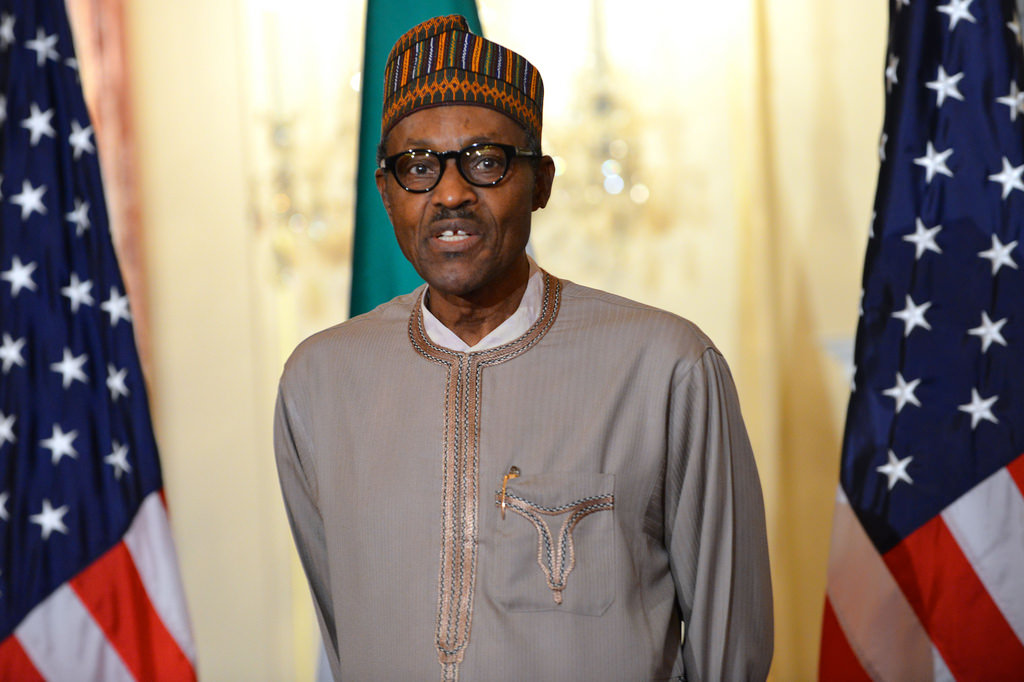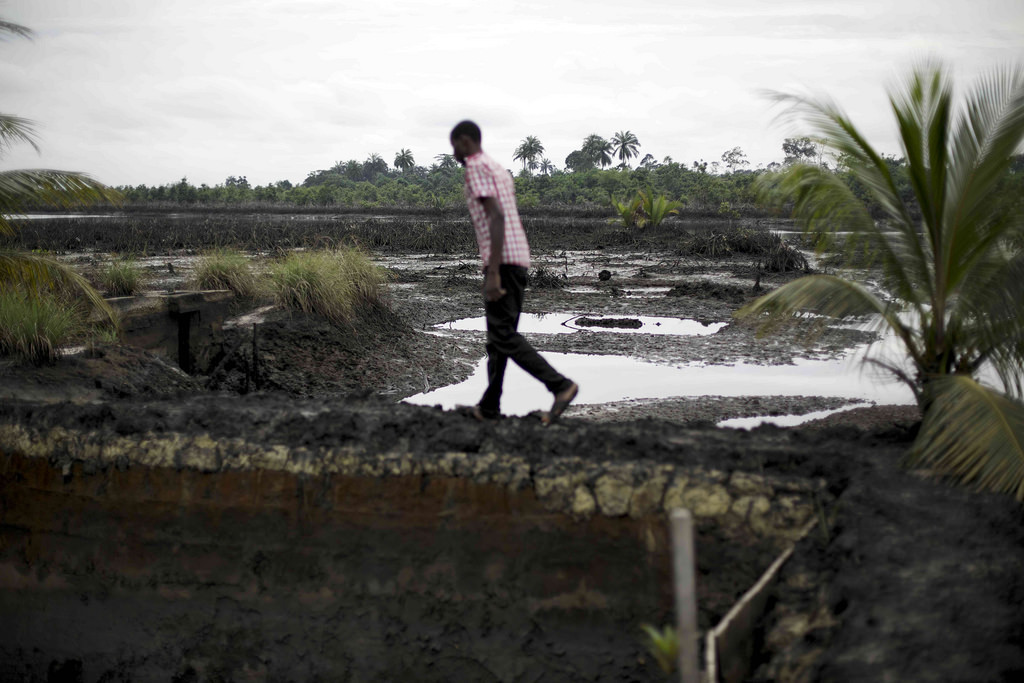Nigeria is on the verge of serious change, in particular, a change in leadership. General elections (presidential and parliamentary) are scheduled to start February 16th, 2019, but will they mean significant change for the poverty-struck coastal nation?
The current President is 76-year-old coup-leader-cum-democrat Muhammadu Buhari who is running for re-election with the center-left All Progressives Congress. His main opposition is businessman and philanthropist Atiku Abubakar of the center-right People’s Democratic Party.
Features of the elections
General elections are held in Nigeria every four years with polling places available across the country. A voter must be at least 18 years old and must have lived in the constituency where he is voting for 12 months.
The federal government is headed by the president, and every state (of which there are 36) is ruled by a governor.
In this year’s National Assembly elections, a total of 1,848 candidates (1,615 men and 233 women) will apply for 109 seats in the Senate, and 4,635 candidates (4,066 men and 569 women) will compete for 360 seats in the House of Representatives.
There are 91 political parties in Nigeria, but only 34 of them nominate candidates for the presidency.
The winner must receive a majority of votes throughout the country, as well as at least 25 percent of the votes in two-thirds of the states. If none of the candidates succeed, a second round takes place between the leading candidates.
While Nigeria traditionally sees a Muslim politician from the north competing against a Christian from the south, in this election both candidates will be Fulani Muslims.
President Buhari’s re-election bid has been tainted by allegations of his party buying votes.

Presidential Candidates
Buhari heads the All Progressives Congress (APC) party. He ruled Nigeria from 1983 to 1985 and was then re-elected in 2015. After winning the elections, he organized a broad offensive against the positions of the terrorist group Boko Haram, the west African branch of the Islamic State. Despite the president’s declaration of the group’s “technical defeat” in December 2015, attacks by Boko Haram continue to the present.
Over the last few years, Buhari has traveled abroad several times for unexplained medical treatments, while keeping the nature of his ailment a secret from the public. In December 2017, after returning from a regular visit to London, the president declared that his health had significantly improved, but concerns remain over his long-term health problems.
Buhari’s policies focused on recovery from an economic downturn amid the slow recovery of global oil prices. In January, he promised that his administration would not stop the construction of roads and railways and that he would continue efforts to electrify the country.
“We have no money to give to everyone. We will use the money to provide infrastructure – we will try to build your roads and railways, and we will also improve our energy capacities. ”, he said.
Former Nigerian vice president Atiku Abubakar of the People’s Democratic Party (PDP) is his Buhari’s only serious competition. His party advocates for strong neoliberal fiscal policies, despite his unspecified claims of prioritize increased foreign and domestic investment. His personal wealth came from the oil business, the main source of wealth in the country.

Both candidates are regularly accused of corruption.
Political opponents and ordinary citizens accuse Buhari of tyranny and unconstitutional measures. International outcry followed his decision to remove Chief Justice Walter Onnoghen without following proper legal channels, many describing the decision as a coup against the country’s democracy. The PDP suspended their presidential campaign in protest of the action, claiming that the president had compromised the integrity of the elections and severely overstepped his authority.
About Nigeria
Nigeria is the most populous state of Africa with nearly 200 million inhabitants. It is also one of the key economies in the region and the largest oil producer on the continent, producing two million barrels per day. In addition, Nigeria ranks 9th in the world in terms of natural gas reserves.
One of the country’s most serious problems are rampant terrorist groups and other criminal gangs: around 30,000 people died at the hands of the militant Wahhabist group Boko Haram since their founding in 2002, making them the deadliest terrorist organization in the world. Contradictions between locals (such as clashes between farmers and pastoralists over productive land), economic crisis (the country has overtaken India as the world’s poverty capital with 87 million poor) and climate-related catastrophes (droughts and water scarcity) have left the country in a state of dire hardship and chaos.
Nigerian oil
Oil provides 95% of Nigeria’s export earnings, leaving the country extremely susceptible to fluctuations in oil prices. The country’s authorities have even begun lawsuits against oil companies including Chevron, Eni, Total, Shell and Petrobras. Exxon may also join the list of respondents in the near future.
Lagos accuses the companies of illegal exports worth up to $ 12.7 billion between 2011-2014. According to government officials, the five companies had announced the export of 57 million barrels of crude oil to the United States within this four year period, but there are differences in the figures for the departure and arrival of goods, and some goods were not announced at all… in other words, they were stolen.
Another important factor is the hostile sentiments of the local population towards big oil. Militant groups relentlessly attack the oil infrastructure in the Niger Delta, which has repercussions across the entire industry.
Locals criticize “big oil” for pollution, and failing to provide the jobs the companies have promised, which contributes to the spread of poverty.
Residents complain that no one has bothered to make the companies provide compensation for the damage oil refineries cause to the environment and the health of people living in nearby villages. In such desperate conditions, the oil pirates’ actions seem more like acts of necessity than piracy.

Forecasts
Mass disruptions around the elections are not out of the question if the results are heavily contested or considered to have been falsified. The one positive element is that the candidates belong to the same region, religion and ethnic group, making the likelihood of inter-ethnic conflicts minimal.
Nigeria’s main economic partners are the United States, the United Kingdom, Germany and China. If the upcoming elections lead to chaos, it could be used a pretext for intervention, since these countries are directly interested in influencing the oil-rich region.
Meaningful change in Nigeria can only come through heavy regulation or state-control of oil companies. In many respects, the nation’s dependence on the “oil needle” resembles Russia – in both countries, the population does not receive a full return from the wealth of its resources. However, if in Russia money disappears at the highest social levels, in Nigeria, in addition to domestic corruption, locals see very clearly how foreign global magnets are robbing the public coffer. Either foreign companies in Nigeria will offer appropriate compensation for what they take, or they will have to be driven out of the country. At the moment they are engaged in nothing short of open robbery.
If the oil companies are expelled, Nigeria will be able to take a difficult but independent path, with the risk of being isolated in the international arena like Venezuela. Nonetheless, only a sacrifice on this scale will allow the country to finally enjoy the wealth of its own resources.









Leave a Reply